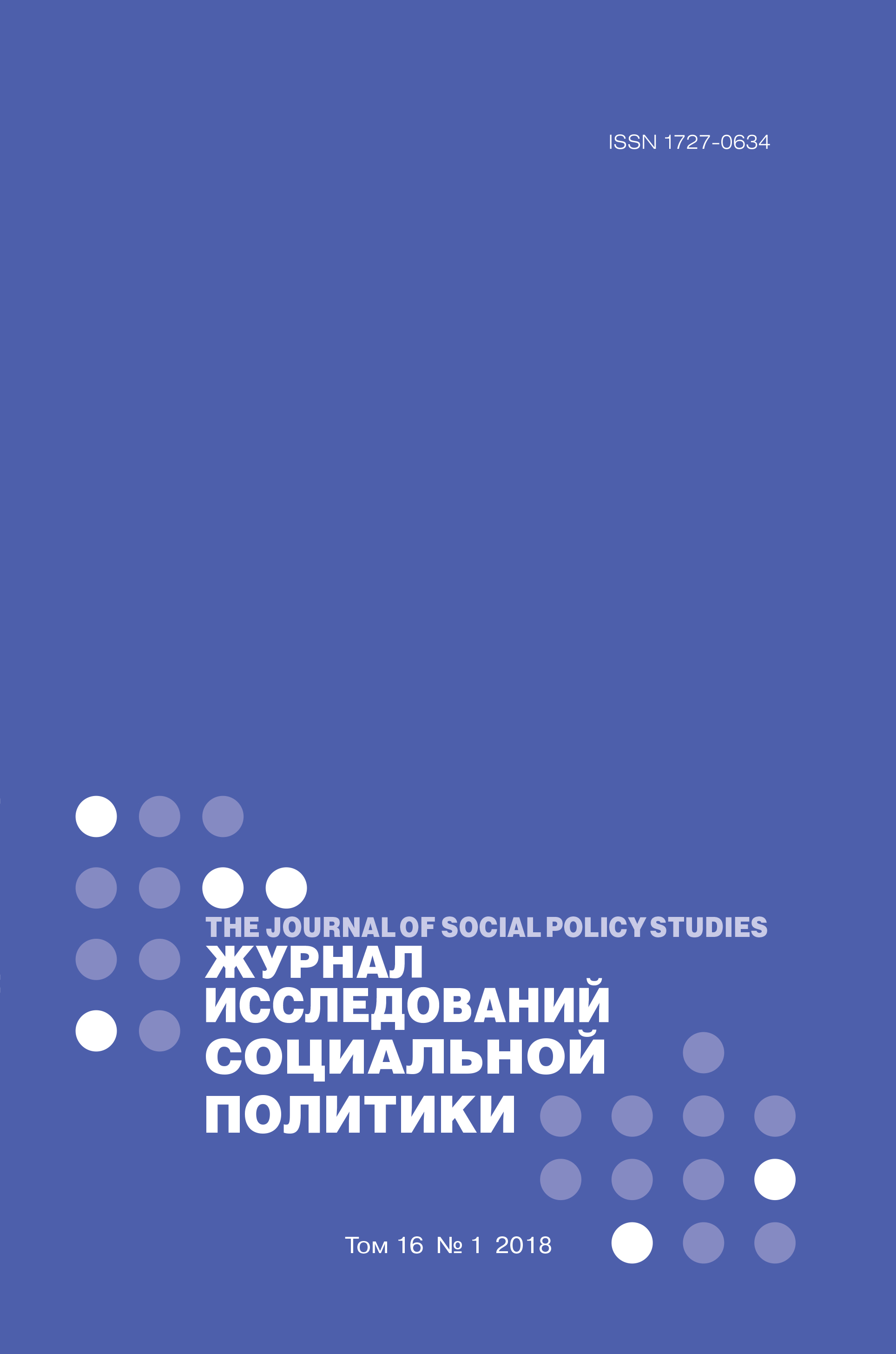The Elderly in the Modern Russian System of Social Work
Abstract
Zaretkhan H. M. Saralieva – Doctor (History), Head of Department of General Sociology and Social work, National Research Nizhny Novgorod State University Named after N. I. Lobachevsky, Nizhny Novgorod, Russian Federation. Email: zara@fsn.unn.ru
Irina E. Petrova – Ph.D (Sociology), Associate Professor of General Sociology and Social Work, National Research Nizhny Novgorod State University Named after N. I. Lobachevsky, Nizhny Novgorod, Russian Federation. Email: irinapetrova@mail.ru
This article examines recent changes in social policy and social work in relation to older citizens in modern Russia. The main focus is on the transformation of social work with the elderly in the last four years, which is linked to growing contractual relations in social services and the participation of socially-oriented non-profit organizations in the competition for state subsidies. The study of non-state social work with respect to the elderly was conducted through consulting a variety of sources, including expert interviews with representatives of religious organizations on the provision of social services (N = 59) from 2008–2013; surveys in Nizhny Novgorod based on quota sampling (N = 1976) in 2013–2014; notes from conversations on the how the religious needs of clients in the provision of social services in state social institutions are accounted for (N = 53) in 2015–2016, and, finally, the authors’ observations on social assistance provision to elderly religious organizations in Nizhny Novgorod, Moscow, Ukraine and Germany over the last twenty years. According to this research, the expectations of the elderly regarding the social services of state institutions and religious organizations are focused on passive assistance. Experts of religious organizations construct elderly clients as beneficiaries, ignoring their resources and any possibility of activation. Uneven lagging behind the ideology of social work from the benchmarks of social policy is noted. The main type of activity in state institutions revolves around the formation of a register of recipients and the implementation of social services. Non-commercial secular social organizations demonstrate a much wider range of social services and are ready to introduce innovations. Religious organizations traditionally refer the elderly to clients of social work and orient them toward passively receiving assistance.















